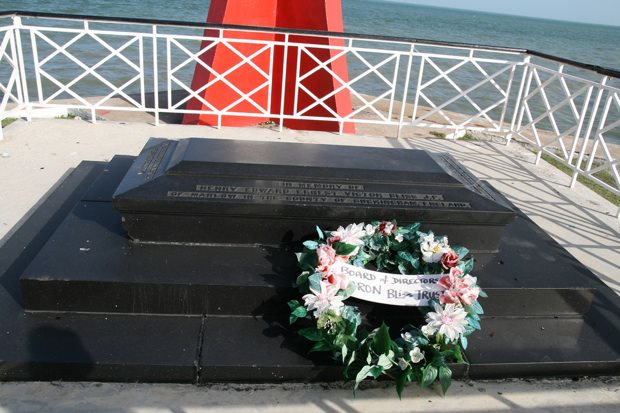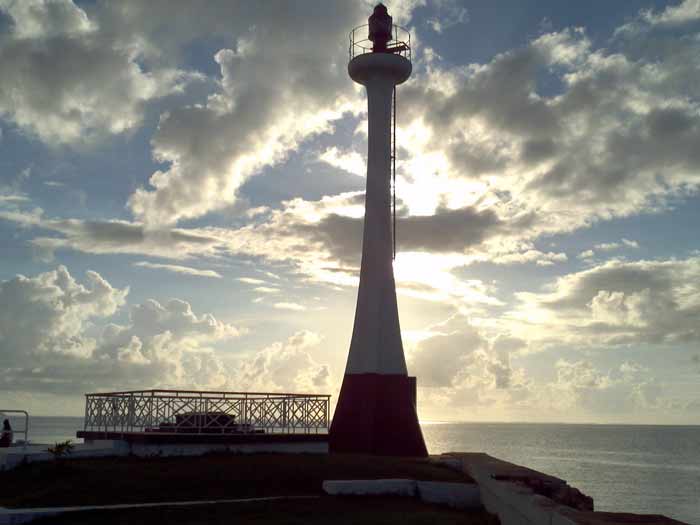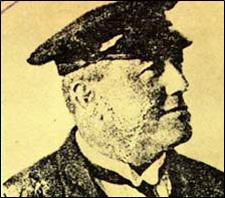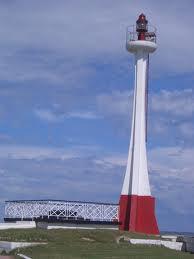Baron Bliss Day
"It has been suggested that Belize has more holidays than our less than robust economy can afford, and while I tend to agree, there is one holiday that I hope will never be considered redundant. Ninth of March is known in Belize as Baron Bliss Day and has been set aside to commemorate the memory of our biggest financial benefactor. Baron Henry Edward Ernest Victor Bliss, JP was born in the Buckingham County of England on the 16th of February, 1869. His original surname was actually Barretts but was changed to Bliss just about the time that he acquired the title of fourth Baron of the former Kingdom of Portugal. This supposedly through lineal descent from one Sir John Moore, who was a hero in the wars of that domain.
By the time of his untimely misfortune, Baron Bliss had amassed enough wealth to realize his dream of retiring to a life of seafaring and fishing. After replacing his first boat, which was commandeered for use during World War 1, Baron Bliss said goodbye to his native England and shoved off, making it clear that he never intended to return. As far as we know, Baron Bliss had no children but was married to one Baroness Ethel Alice Bliss, with whom he settled covenant before leaving and for whom he also made provisions in his will, albeit somewhat modest. According to the Baron, his married life had been a happy one but records reveal no attempt by the Baroness to attend the funeral. She died in England in 1945. After leaving England, Baron Bliss made his first stop in the Bahamas where he acquired some property seemingly indicating that he contemplated staying there. After some five years, however, he grew to dislike the place and in 1925 shifted rudder for the other end of the Caribbean. His next stop was Trinidad but after contracting food poisoning just a short time after arriving, he concluded that neither was that place for him. At that time he decided to heed the invitation of an old friend Willoughby Bullock, who was then Attorney General of Belize. After a brief stop in Jamaica, most likely for medical attention, the Sea King on January 14th, 1926, dropped anchor in the harbor of Belize and the Baron's heart was at ease. 
Now the will left to us by Baron Bliss is a meticulously worded document which is quite specific in its dos and don'ts. Only the interest is to be spent and no loans can be raised on the security. An interesting stipulation is that no American is to be a trustee or an employee of any trustee -- and for this, no actual reason is given. The money is not to be used for churches, dance halls or schools, except agricultural or vocational, which leaves the door wide open for some aid to CET. The money can also be used for canals, which leaves one wondering if maybe the Collet Canal could not be brought up to the standard of the East Canal. It can also be used for light supply and with many of our parks and playgrounds in dire darkness, one wonders if the illumination of these might not be a worthwhile project? For many years I had a copy of the Baron's will. I must have loaned it out to someone and as can usually occur, in particular with me lately, I have forgotten to who. Nevertheless, the will is quite specific and even stingy in the things for which the money can be used. If I remember well, sports nor education were among those things for which it was allowed...Baron Bliss was quite clear in stating that there are some things which he believed that the government should be responsible for. Which is why he was abundantly clear that his money should not be used for repairs nor maintenance. He felt that the government should take up that responsibility.. Another thing that I remember quite well is that no American citizen is to ever be involved with his money....he never made clear why. The problem is that since 1985, when Leo Bradley Sr. did such a notable job of compiling the information from which I have drawn, no account of disbursements has been given. By the time of Mr. Bradley's research, quite a few projects had been realized with the interest having yielded well over a million dollars. The Bliss Institute, the Bliss School of Nursing and at least one project in every district had materialized, but since that time the purse string seem to have been drawn tight. One wonders if every ninth of March would not be a good time to give the public information on interest accrued and some account of money spent, for after all, this was a gift to the people of Belize. The trustees of the fund, in case you're wondering are the Governor General, the Attorney General and the Financial Secretary. Now of course we could not have picked a better time to honor Baron Bliss for it is a time when the weather in Belize is blissful. The holiday is timed perfectly to kick off our dry season and the beginning of our fruit harvest. Let us gratefully acknowledge the Baron's graciousness this weekend and always remember that it pays to be hospitable. To my fellow recipients of this fund, a happy and safe holiday weekend and to the Baron, wherever you are, a heartfelt thanks. With the Last Word, G. Michael Reid. 
Response from Amandala.... In our mid-week issue last week, we published an article on Baron Bliss written some years ago by G. Michael Reid and published by the Casado Internet Group. When the Baron Bliss holiday comes up March 9, we will reproduce the article, because it is a very important article, for several reasons. Today I want to discuss the article’s reference to an old, crippled Belizean whom we used to call “Baron” in my childhood days in the 1950s. The writer referred to the fact that some people used to say that the wheelchair used by the Belizean “Baron” had originally been Baron Bliss’ wheelchair. He then threw cold water on that speculation by saying that the British Governor at the time, John Alder Burdon, was not as “liberal” as Baron Bliss was, hence Burdon would not have allowed Baron Bliss’ chair to be passed on to a black Belizean. There are three things, however, which suggest to me that Burdon was not a virulent white supremacist. The first is the fact that it was his, Burdon’s, Archives, which told the story of the 1773 slave revolt, the settlement’s largest such revolt ever, on the Belize Old River. The colonial education system in British Honduras had buried that story until I discovered it in the library that used to be upstairs of the old Bliss Institute. This was back in 1969, 1970. I really don’t remember how the discovery came about, but the fact is that Sir John Burdon had done a great service for us descendants of slaves in the settlement of Belize. There is no proof that he intended for us to use this material to honor our ancestors. He may have been merely a meticulous historian. But, a virulent white supremacist would have ignored that material. They actually burn books they don’t like, you know. My second argument has to do with the fact that when Baron Bliss knew he was going to die, he sent for Burdon to help him prepare his will. It was a sensational will, because the Baron was leaving all he owned to the colony of British Honduras, on whose land he had never set foot and whose population was overwhelmingly black. All the Baron knew of us was that the fishing here was spectacular, and he had held friendly conversations with the Belize fishermen who would sail past his yacht, Sea King, anchored in the harbor. Baron Bliss’ will has benefited this country and our people substantially. He is our greatest benefactor. A sinister Governor could have sabotaged Baron Bliss’s intentions in different ways. I would argue that Burdon faithfully complied with the Baron’s act of love for Belize. My third argument involves the 1928 cycling expedition to Cayo and back which has now become the greatest one-day sporting event in this region – the Holy Saturday Crosscountry Cycling Classic. Burdon was the Governor then, and Monrad Metzgen’s writings all give testimony to the fact that the Governor was a supporter of the event, experimental as it was. If the Governor didn’t support the ride, it would probably not have happened. For sure it could not have been as great and as successful as it indeed was. According to Wikipedia, Burdon was Governor of British Honduras from 1925 to 1932, which means he was here for the terrible 1931 hurricane. He died in 1933. Wikipedia also claims Burdon wrote the Brief Sketch of British Honduras, a historic publication which has disappeared from Belize for some reason or the other. On the subject of Governors, in 1969, while teaching at the Belize Technical College, I was invited to Sir John Paul’s Government House to be interviewed by the Trinidadian novelist, V. S. Naipaul. Naipaul subsequently disrespected me in his reference to our discussion. I don’t recall meeting the Governor. As far as I can recall, the only Governor I ever met was Sir Richard Neil Posnett, who invited me to Government House in 1974. I took Jack “Poppa Treetop” Jordan along with me, and we took a picture with the Governor, which I framed and had somewhere. I believe this was around the time of the Guatemalan threat when Posnett famously told Belizeans on Radio Belize, “Rest easy, and sleep well,” after the Harriers arrived. After leaving Belize in 1976, Posnett was in Bermuda, where the local authorities accused him of financial irregularities. Because Wikipedia reports that Posnett turned down a posting of consul general in South Africa because of his disdain for apartheid, I would tend to be a Posnett fan. I am glad to know that Sir Richard was exonerated on these charges. In fact, Wikipedia refers to his reputation as an “enthusiastic decoloniser.” (In Bermuda, they are still a colony.) Any Governor who would invite a local black power leader to chat at Government House, is all right in my book. Power to the people. Power in the struggle. RESPECT, BARON BLISSVery little is known about the early life of Henry Edward Ernest Victor Bliss. He was an Englishman born on 16th February, 1869. Before leaving England, he lived at Quarry Court, Marlow, in the County of Buckingham, England. He was an engineer by profession and was married to Ethel Alice Baroness Bliss, to whom he had left a settlement before travelling abroad. Nothing is known about how Baron Bliss acquired his wealth of almost a million pounds, whether through his profession, business, or inheritance, or all three. At the time of his death, he had, besides his properties, a large amount of securities and shares. He must have been community-minded, as he was appointed a Justice of the Peace. At some time in his adult life, Baron Bliss acquired the title of the 4th Baron Bliss of the Kingdom of Portugal, succeeding his ancestors, who held the position before him. At this time, he changed his surname from Barretts to Bliss. Most likely an ancestor of Baron Bliss was awarded the title of the 1st Baron of the former Kingdom of Portugal, and Baron Bliss succeeded to this title as the 4th Baron. Tragedy struck the Baron when, in 1911, at the age of 42, he was attacked by paralysis, which affected him from the waist downwards, consigning this brave man to a wheelchair. However, he was still active and later acquired a yacht for leisure travel in the United Kingdom. This yacht was commandeered for war purposes during the First World War. After the war, he acquired his famous yacht the “Sea King II,” which was built to his specifications for use in tropical waters. In 1920, he sent the “Sea King” to the Bahamas and followed it to live on board while fishing, even if he was physically handicapped. Baron Bliss stayed in the Bahamas for five years, acquiring property there. However, he grew weary of the social and administrative life in those islands, and in 1925, he traveled to the other end of the Caribbean, to Trinidad, where he again lived aboard the “Sea King”. While in Trinidad, his health began to fail from a bout of food poisoning. Trinidad did not appeal to him and he began thinking of elsewhere to go where he could enjoy fishing, and where the atmosphere was more to his liking. After hearing of the fishing potentialities of Belize and after learning about its coastline, barrier reef, and small cayes, he decided to sail to Belize. Still a sick man, he stopped in Jamaica for a few days, and arrived in the Belize City Harbour on 14th January, 1926. For the next few days, the Baron’s health appeared to improve, and he took every opportunity to sample the fishing of the nearby waters. He often used his small launch, also named the “Sea King”, and in the company of local fishermen, visited the cayes and barrier reef, where he seemed very happy and content. But soon the Baron’s health began to deteriorate. Just a few days before his 57th birthday, he took seriously ill and his doctors advised him that the end was near. He asked the Governor, Sir John Burdon, to visit him aboard his yacht, and informed that he wished to leave the bulk of his estate for the country of Belize. On the 17th of February, one day after his 57th birthday, his will was executed and signed aboard the “Sea King”. A few days later, on the 9th March 1926 Baron Bliss died aboard his yacht in the Belize City Harbour, never having set foot on Belizean soil. After a funeral, attended by the Governor and his staff, the Chief Justice, members of the Executive and Legislative Councils, and a wide-cross section of the Belize City society, the Baron was buried in the Bliss Park on the evening of 17th March, 1926. This location was a temporary arrangement. In his Will, the Baron had ordered that his body should be permanently buried near the sea in a granite tomb surrounded by an iron fencing, with an obelisk or lighthouse nearby which would be available for visitors and citizens. In his Will, the Baron meticulously set out the arrangements under which his executors would invest his money and use the income from such investments for the permanent benefit of the country Belize and all Belizeans. His will called for the formation of a trust, headed by the Governor, and comprised of the Colonial Secretary and the Attorney General. He stipulated that the trust’s main bankers should be Messrs Coutts & Co. of the Strand in London, and that Messrs Alexander Clapperton, C.A. should be its auditors. Almost 75 years later, the Baron Bliss Trust is still dealing with these two firms. After allowing for lifetime annuities for his wife, a few close relatives, and his faithful staff, the bulk of his estate was left to Belize. At the end of the first year, the estate was valued at about $1.8 million Belize dollars. However, a ruling in the British courts ordered that the Baron’s estate was liable for the payment of estate duties in the United Kingdom, which claimed some $480,000 of the legacy. He also stipulated that a sum of 100 pounds sterling should be set aside annually for a sea or river regatta in one or two towns in the country. Shortly after his death, the day, March 9th, was declared an annual public and bank holiday in this country. In the ensuing years, the trust has spent well over two million dollars on various capital projects across Belize. The Bliss Institute, the Bliss School of Nursing, the old Intransit Lounge at the International Airport are but a few of the contributions of the Baron’s trust. In more recent years, a multipurpose center in Punta Gorda, a library in Santa Elena, and a bathing pier in Progresso have all been funded by the Baron Bliss Trust. Three years ago, the Belize Maritime Trust, with financial support from the Baron Bliss Trust, rehabilitated the Baron’s small launch, which accompanied the “Sea King II”, and has placed it on permanent display on the grounds of the old Government House for all to see. Today, the capital of the trust remains at about BZ$1.5 million, most of which is held in UK stocks and securities and other term deposits, as required by the Baron’s will. In 1995, through the efforts of His Excellency the Governor-General, Chairman of the Baron Bliss Trust, and with the assistance of Belize’s High Commissioner in London, contact was established with the surviving relatives of the Baron, living in the United Kingdom. This resulted in a visit to Belize by the Rev. Rupert Bliss, a nephew and most direct descendant of the Baron, and his wife in March, 1996. While in Belize, Rev. Bliss participated in the annual Wreath Laying Ceremony on the 9th March. As we gather for the short and simple ceremony of laying wreaths on the Baron’s tomb, we indicate by our actions the respect that thousands of Belizeans have towards Henry Edward Ernest Victor Bliss, J.P., the 4th Baron Bliss of Portugal. The annual Harbour Regatta is another sign of the honour and respect that Belizeans, over the years and through the generations, have had for the Baron. By his entry to the Belize City Harbour on January 1926, and by the impressions he quickly formed of Belize and Belizeans, a great bounty was inherited by Belize for countless years. We would like to believe that Baron Bliss could not have left his money for a more deserving country and people. He is indeed Belize’s greatest benefactor. (Ed. NOTE: The above article is extracted from Baron Bliss and His Bounty to Belize, by Leo H. Bradley, J. P., Government Printery, 1986. The article was first published in the Sunday, March 9, 2003 issue of Amandala.) |
 We would like you to remember a man who
spent years in search of a place to call home and finally found it on
our shores. Although he might have been forgotten, seventy-three
years later he is venerated. But it's not the money he left behind
that we appreciate; it is his own gesture of appreciation to those
who gave him a sense of contentment in his last days.
We would like you to remember a man who
spent years in search of a place to call home and finally found it on
our shores. Although he might have been forgotten, seventy-three
years later he is venerated. But it's not the money he left behind
that we appreciate; it is his own gesture of appreciation to those
who gave him a sense of contentment in his last days.
 In 1911 and at the prime age of 42, Baron Bliss was struck by
paralysis and was for the remainder of his days, confined to a
wheelchair. Many will remember a paraplegic who used to move around
Belize in a chair that was said to have belonged to the Baron but
that fact has been disputed. While no one knows for sure what
happened to the Baron's chair, a popular theory is that then governor
Sir John Alder Burden, would never have given it to a poor and common
black man for he was not nearly the liberal that the good Baron was.
In 1911 and at the prime age of 42, Baron Bliss was struck by
paralysis and was for the remainder of his days, confined to a
wheelchair. Many will remember a paraplegic who used to move around
Belize in a chair that was said to have belonged to the Baron but
that fact has been disputed. While no one knows for sure what
happened to the Baron's chair, a popular theory is that then governor
Sir John Alder Burden, would never have given it to a poor and common
black man for he was not nearly the liberal that the good Baron was.
